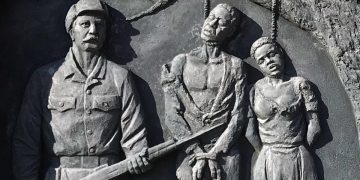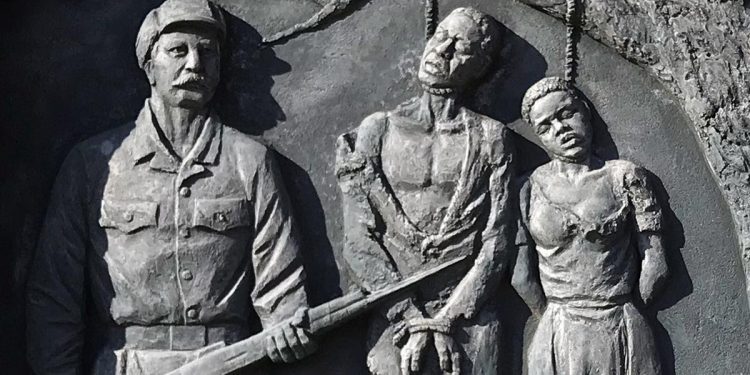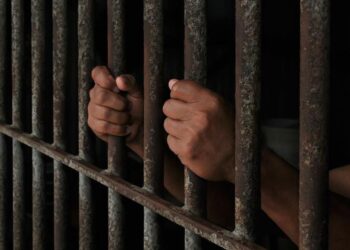By John Ikani
Germany has agreed to fund projects in Namibia worth 1.1 billion euros ($1.3bn) over 30 years to atone for its role in mass killings and property seizures in its-then colony more than a century ago.
German and Namibian negotiators concluded the agreement on Friday after more than five years of talks.
The European country on Friday formally recognized as genocide the crimes committed by its colonial troops at the beginning of the 20th century against the Herero and Nama people in what is now Namibia.
Thousands of Herero and Nama people were killed by German colonial forces between 1904 and 1908, after the tribes rebelled against German rule in the colony, then named German South West Africa.
Survivors were driven into the desert, where many ended up in concentration camps to be used as slave labour and many died from cold, malnutrition and exhaustion.
“We will now describe these events officially as what they were from today’s perspective: genocide,” Foreign Minister Heiko Maas said in a statement.
According to him as a “gesture of recognition of the immeasurable suffering” Germany caused, it would set up a fund amounting to €1.1 billion (US $ 1.34 billion).
Affected communities would play a key role in deciding what the funds were used for, the Foreign Ministry said in a statement, while legal claims for compensation would not be deducted from it.
The aim of the negotiations that lasted more than half a decade was “to find a common path to genuine reconciliation in memory of the victims,” Maas explained.
Some representatives of the Herero and Nama peoples have voiced criticism of the agreement, saying that it was a PR stunt by Germany and a bid to defraud the Namibian government.
However, neither of the groups expressing objections — the Ovaherero Traditional Authority and the Nama Traditional Leaders Association — can be considered as representing all Herero and Nama groups.
Members of both groups have demanded an official apology from Germany, as well as financial reparation.




































